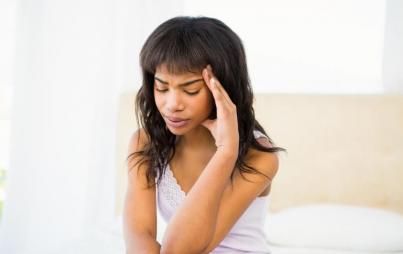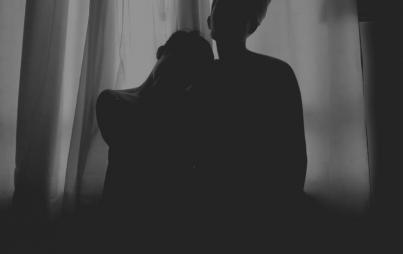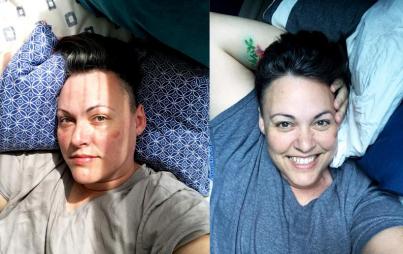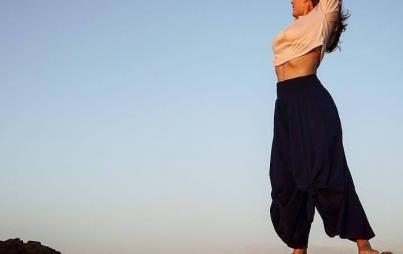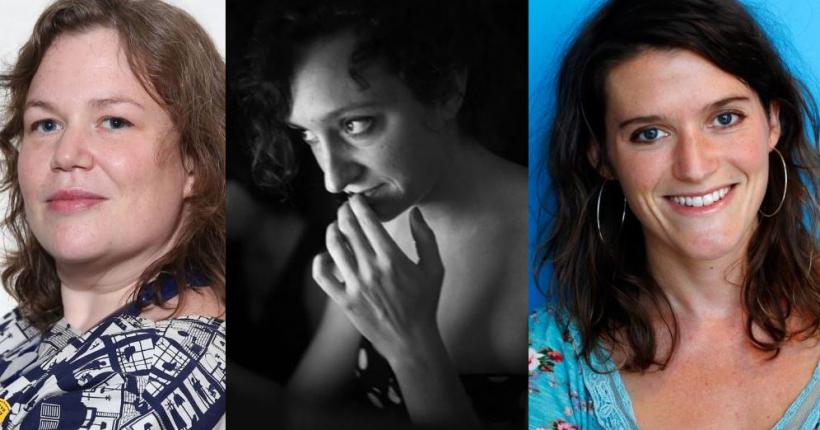
For podcast geeks like myself, it's been a gratifying few months. Serial, a riveting true-crime show, recently became the most popular podcast in the world, even making its way onto SNL for a hilarious—if loving—skewering. Invisibilia, the brilliant love child of a former This American Life producer and Radiolab producer, launched to critical acclaim and commercial success. And Radiotopia, a collective of storytelling-based shows, has provided funding and exposure for such illustrious programs as Strangers, Fugitive Waves, The Heart, The Allusionist, and Radio Diaries.
Oh, and did I mention all these shows are hosted and/or produced by women?
This is worth an extra dose of gratification because, like so many forms of media, podcasting has long been dominated by (white, cis) male voices. Two years ago, writing for Transom, Julie Shapiro stated that we should all be "alarmed" by the lack of diversity in podcasting. Back then—according to the popular podcast-delivery app Stitcher—71 out of the top 100 podcasts were hosted by men, with just 11 hosted by women, nine co-hosted by a man and woman, and nine featuring alternating hosts.
In terms of sheer numbers, not much has changed since then.
According to today's Stitcher rankings, of the top 20 shows, only three are hosted solely by women, including the aforementioned Serial and Invisibilia.
And yet, the success of these new female-helmed shows suggests things are improving. So too does the launch of the diversity-driven Radiotopia; recently, on the popular program 99% Invisible, host Roman Mars made a point of saying that the collective had as many female hosts as male hosts. Kerri Hoffman, COO of PRX, the online marketplace for public radio programming that funds Radiotopia, tells me that they've focused on cultivating a diversity of voices and talent. And for good reason; "communication comes easy to many of our female hosts," she says.
Could a gender revolution in podcasting be upon us? To find out, I reached out to eight women who host and produce some of today's leading podcasts:
Lulu Miller: Co-host of NPR's Invisibilia, a show dedicated to exploring the intangible forces that shape human nature.
Phoebe Judge: Host of Radiotopia's Criminal, a show about people who’ve done wrong, been wronged, or gotten caught somewhere in the middle.
Lea Thau: Peabody Award-winning former director of The Moth, and current host of Radiotopia's show Strangers, featuring true stories of heartbreak and kindness.
Sarah Kramer: Producer of Radiotopia's Radio Diaries, presenting extraordinary stories of ordinary life.
Kaitlin Prest: Host and creative director of Radiotopia's The Heart, an audio art project about intimacy and humanity.
The Kitchen Sisters: Peabody award-winning independent producers who work on NPR shows and Radiotopia's Fugitive Waves, sharing lost recordings and shards of sound along with new tales from remarkable people around the world.
Helen Zaltzman: Host of Radiotopia's The Allusionist, exploring etymological adventures.
All these women are palpably passionate about the world of podcasting, singling out many of the things that I've come to love about the medium too: the flexible formatting, the creative freedom, the intimacy of listening to a human voice share a powerful story. As Prest puts it, "Podcasting is a magical musical mental movie theater of amazingness and I'm going to do it until I die or go deaf."
Their passion, and the quality of the work they're producing, makes it especially evident that we need more female voices in podcasting—and that this revolution, if you can call it that, deserves to be fostered and bolstered.
More than that, there's an imperative to further diversify by providing a platform for more people of color, queer people, and other voices that have long been sidelined.
Here's what these formidable podcasters think about the state of gender parity in podcasting today, the value of diversification, and industry sexism that can be subtle but damning.
Do you think there are enough female voices represented on the airwaves? Do you think things are changing? 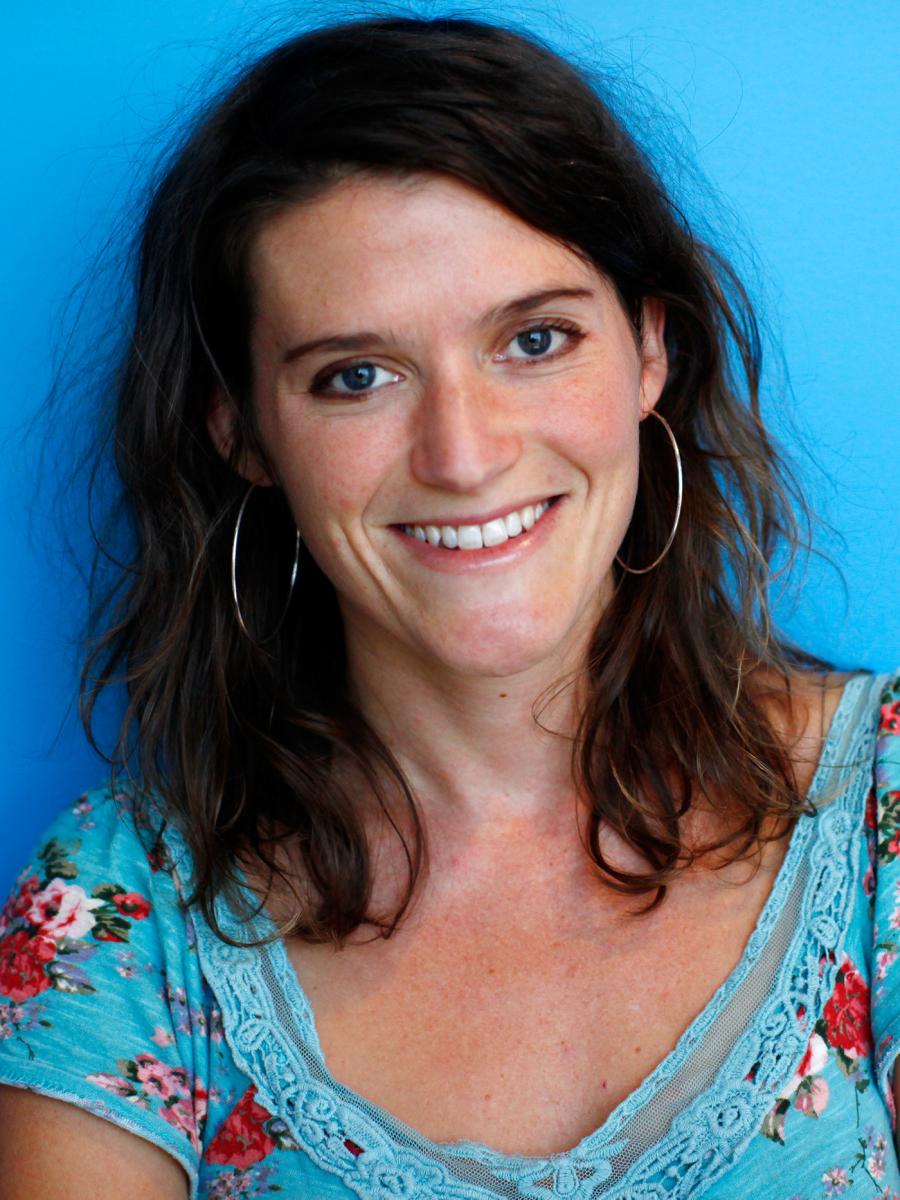
Miller: I’m sure the numbers are skewed to more men, but I do think there’s a lot of growth and love for female-hosted shows. One of the things we're hearing right now is that people are happy to hear two female co-hosts. It’s definitely not the first time this has been the case, but it’s a dynamic you’re seeing more in pop culture—with shows like Broad City, for instance. The lady bromance is starting to become a thing. So maybe the change is tapping into that. It’s nice to have female friends who aren’t in competition with one another; where it’s not about love and boys.
The Kitchen Sisters: When we started, there were just a handful of other independent women producers being heard on NPR. We came of age in the era of Jay Allison, Dave Isay, Scott Carrier, then Joe Richman. Now there is a remarkable group of women creating their own podcasts. I always felt like [my co-host] Nikki and I were part of a girl's band (secretly called Phantom Power). When we see Serial, The Moth, Lea Thau's Strangers, Heart, Criminal, The Allusionist, Nerdette, Decode DC, Brooke at On The Media, Death Sex and Money, and a bunch of others, and when we listen to Alix Speigel and Lulu Miller's Invisibilia, it feels like things are opening up. There's a little more air in the room.
Kramer: The world of podcasting is dominated by white male hosts. That is the sad reality. It is my hope that more women and more people of color will be represented on the airwaves (both podcast and public radio) in the near future. But I do not believe this will happen organically; I think that proactive steps need to be taken by institutions in order to shift the imbalance. Roman Mars and Radiotopia did something proactive by selecting women-hosted podcasts for Radiotopia and by initiating a pilot development fund to diversify the voices heard on the network.
Prest: No I do NOT think there are enough women on the airwaves, making their work from their own perspective. I DO think things are changing. For middle-class white women. What about everyone else who deserves a piece of the pie? 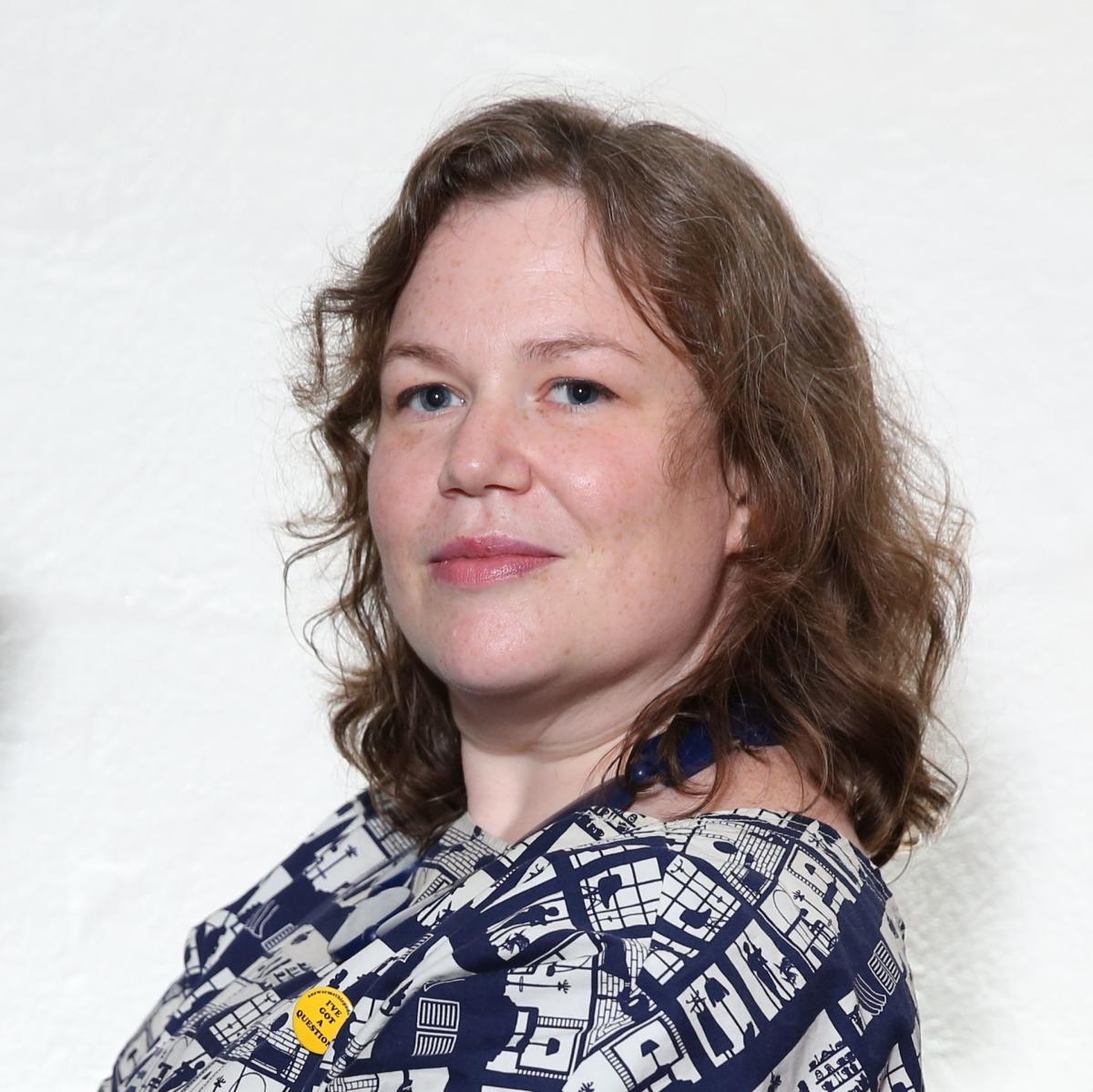
Zaltzman: I'm in the UK, where I know far fewer female podcasters than male ones. This might be a reflection of how our highest-profile podcasts are in the comedy genre, and the comedy scene is very male-dominated too. Also, our radio industry is rather sexist. I've been working for a couple of years with Sound Women, a lobby group that is trying to even up the gender balance of the radio industry, on air and behind the scenes; they published some research in 2013 that showed that only one in five radio hosts is female, and they're hardly ever in high-profile time-slots, or they're a male host's sidekick in a subordinate role (never the other way round).
And good luck trying to find a female duo on air anywhere in the country. Station controllers recently made noise about adding more women to the line-up, but change is so slow, I'm not sure whether it is actually happening.
A lot of decisions seem to be based on a piece of research, allegedly from the 1970s, that said listeners do not enjoy hearing women, even female listeners. Nobody working in radio today has actually seen a copy of this research, but they're all too happy to keep the rumor alive, and they continue to confirm it with their employment decisions. When you rarely hear women on the airwaves, it kind of reinforces the idea that women don't belong on the airwaves. Perhaps this is distilled into podcasting too: Women aren't supposed to be heard; women lack the confidence to be heard.
Meanwhile, all the female radio presenters I've spoken to have to work a lot harder for the same opportunities as men, and in interviews they are always asked gendered questions: They aren't just judged on their work, they're always expected to be representatives of their entire gender, which is not something that happens to male presenters at all.
So it's hard to be a woman in radio, but I don't know why there are comparatively few women in podcasting, which doesn't have the same gatekeepers, or any gatekeepers at all. Do women not feel like they have something to say which deserves to be heard? Are they worried about the tech side? Or do they just choose better hobbies than podcasting? Come on, women: Give podcasting a go!
Why strive for gender balance? What value does it provide?
Thau: I think gender balance provides value simply because, like all diversity, it adds different perspectives and voices. And podcasting has until recently been a male-dominated medium.
The Kitchen Sisters: That's what I love about Radiotopia; it's the guys and the girls looking out for balance, a wide perspective and a variety of approaches and aesthetics. Part of the vision behind Radiotopia is storytelling from an array of vantage points, styles, and topics that don't always get heard, even on public radio. Stories that are more personal, more on the edge and experimental. Stories from the outerlands and the margins. We can't really claim a wide perspective and a host of vantage points and being on any kind of leading edge if women aren't a big part of it, at least half part of it. 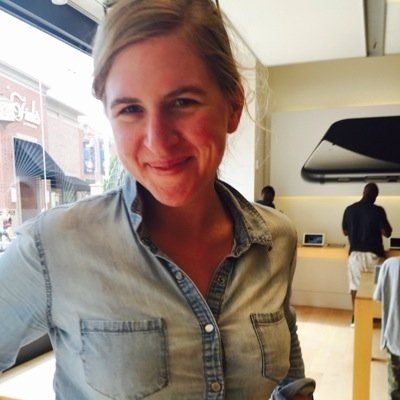
Judge: It feels like the question isn't "why strive for this gender balance" or "what value does gender balance provide," but like, "why is this same old shit still so popular?" And at this moment, it's perhaps more necessary to be having a conversation about the whiteness of public media and podcasts than its gender trouble. Chenjerai Kumanyika recently wrote a terrific piece about this on Transom.
Prest: Simple answer: Because it's nice to share.
Complicated answer: Most people consume media—be it news, film, radio, literature, television. Seeing yourself and your experience reflected in the media is one of the best feelings in the world. It makes you feel validated, it makes you feel heard, it makes you feel real. It's empowering. There are huge groups of people who either A: never see themselves reflected in the media or B: only see themselves reflected through the lens of someone else's (white straight upper/middle-class male) perspective. Women are only one of these groups. There are so so many more. And to be honest, I think the value of having middle-class white women's voices is a start, but still problematic in many ways.
It's empowering to have a chance to produce a radio show about something you think is important or interesting. You make things, and people listen to it. It makes you feel important. Currently, one demographic has a major monopoly on this feeling, and the power structures that provide access to it. There are so many other demographics whose experience is worth sharing. Whose stories are worth telling.
Zaltzman: Ideally, we wouldn't have to discuss gender balance at all, because the media would automatically be properly representing the whole population, by gender, race, sexual orientation, etc. Future generations are going to think people in 2015 are SO DUMB for talking about women as if they are a minority, when they are more than half the population. So dumb! But while podcasting, like most forms of media and entertainment, is dominated by straight white men (and I mean no offense to straight white men; they make some great shows), positive discrimination is a necessary route to take. However, while straight white men are most likely to be in the positions to improve gender imbalance, it's not a problem that directly affects them, so they aren't usually particularly compelled to care about it. I was impressed that Roman made a point of saying, "This is something we need to fix, and we're starting by making Radiotopia equal." It shows that something can be done, so if you don't do anything when you could, you should be embarrassed.
Why do you think podcasting has been male-dominated?
Thau: I think there are a few reasons why podcasting has been male dominated until recently. In traditional public radio (broadcast), there’s been a better gender balance than in podcasting, which may have to do, in part, with greater job and income security. As a public radio producer or host you typically work for a station or a network and have a salary and benefits. As a podcaster, you typically work for yourself and that can be scary if you have kids to feed, because you have to reach a certain level of success before you can monetize your podcast. Men have families, too, of course, but they may be more brazen on average, more confident that they can take the entrepreneurial leap and be successful at it. Personally I might be a bit of a “man” on that front.
But I think there’s another, perhaps more important, factor, too, which has to do with the role of the host on a podcast. On traditional public radio shows, hosts aren’t necessarily big personalities. They are often less of a presence on the show than a podcast host. On a podcast you have to be a personality and make a connection with your audience that way, because there are no passive listeners to podcasts. People don’t just happen to hear you through the air waves while driving or cooking; they have to go find your show and download it and choose to play it. Getting them to do that—and to come back next time—involves establishing a more personal, intimate connection with your audience. And I think many women have a fear of standing up and saying, "Hey, look at me, I’m funny, I’m smart, I have something to say, you should ALL listen to ME." I know I did. It was a hurdle I had to overcome when I started this show (I’d previously hosted The Moth Radio Hour, which I'd created, but I was one of several hosts and the show wasn’t driven by the hosts' personalities). It’s not a traditional feminine value to stand up and grab the spotlight, and I had a lot of fear around it. But I took the leap and it has paid off, and as a culture in general, I think we’re quickly getting used to women in that kind of role, and I think women are getting more comfortable with it.
The Kitchen Sisters: It takes a lot of confidence and grit to stick with it, to make every mistake in the book and still keep producing, to find a place to learn the craft, really learn the craft, and then decide YOU are the one whose stories must be heard. YOU are the one with a great idea for a series or a podcast and you found the right title for it and a team to produce it with, and now you are going to lay yourself on the line and offer them up. That's often a lot easier for men to do than women. I think you all know why; I don't have to go into that. Give a call if you don't and want to talk.
We teach a ton of interviewing and recording workshops and so many young women are coming to us to learn the craft and find their voice. A lot of men in the industry fly solo; women seem to tend to work in pairs and teams. But even the men we know who are the great producers all have teams working full of great women producers (think Julie Snyder and Nancy Updike . . .)
What sexism have you seen at play in the industry?
Miller: For old Radiolab stories, I did tend to get labeled as naïve or an idiot; it was kind of a “dumb girl” thing. I’ve heard of other young women getting really hated on for being young; I haven’t encountered that, but I have been told I’m too naïve or wide-eyed.
That’s all I can think of that I’ve encountered. I’ve found tremendous support at NPR to support female voices and they’re doing active work to improve the situation. There’s a whole diversity sourcing unit; every desk gets trained to look at the numbers on the ethnicity and even geographic diversity of who we're reaching out to when we report. Even for us at Invisibilia, it was humbling to go to that meeting and realize, “Oh, look at how many men are on the show."
Thau: I have never confronted any kind of sexism. When we first started planning Radiotopia, I was the only woman in the mix, and before our first meeting I was a little intimidated, not just because all the others were guys, but also because they had been doing radio much longer than I had, and they all knew each other. I came from the storytelling field, but was somewhat new to the radio world, and then they turned out to be the nicest, sweetest, most supportive guys. They were incredibly welcoming to me (and before we actually launched the network, we’d added the Kitchen Sisters who’d been my role models for a long time, so I didn’t end up being the sole woman at the outset).
Kitchen Sisters: Yes, there's been overt sexism and more subtle forms of sexism too. I know everyone in public media is asked to do a lot for free, and most of the time we are happy to do things for the causes, organizations, and issues we believe in. But some of the time I feel like they just wouldn't ask a guy to work on what they are asking us to work on for free. Men, you pay. Women, you count on the softness of their hearts. That's a big simplification, but perhaps you know what I mean.
Kramer: Women who speak on the radio are constantly criticized for their voices. They are called “unprofessional,” “annoying,” and a whole lot worse. Do a quick Google search for “vocal fry” and read the nasty comments left on NPR. This American Life recently covered this issue on their show. Men who demonstrate vocal fry are hardly ever criticized. 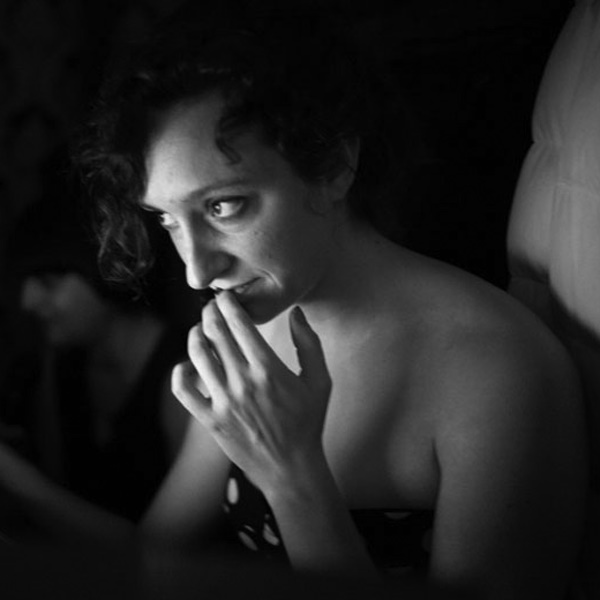
Prest: The show I produce is pretty overtly feminist. We make work from a woman's perspective, often a queer women's perspective, and often a queer women of color's perspective, and as often as possible from other perspectives we don't hear in mainstream media. But it's not ABOUT feminism, it's just about LIFE. I truly believe that the work I'm doing is universally accessible, even if it's from a particular perspective. Yet I have been told that I should forget trying to be part of public radio institutions (or cool new podcasting networks) and just stay within the feminist media circles. I have always felt that's fucked up. It's a trope by now: "I don't want to be a (insert marginalized demographic here) show. I just want to be a SHOW."
That being said, the decision makers at Radiotopia said yes to our show. This restores my faith in public media. I think it's important for people in positions of power to say yes to things that aren't necessarily speaking directly to them and their demographic.
Zaltzman: There's a lot of sexism that isn't outright, like when journalists publish lists of podcasts they like and there'll be one woman-hosted show included, if at all. They just need to remember that women make shows, too, and they are of the same high quality as men's shows. I'm not suggesting they recommend something bad just as an attempt to be more gender-balanced; I've written these lists before and they've been close to equal, without me even making a conscious effort! It IS possible.
To be honest, I've been fairly lucky, though. Sometimes sexism works to my advantage, sort of—people need to book a token woman for a panel or a show or something, so they'll think of me. Their expectations are often low, so when I turn out to be funny or smart, they are pleasantly surprised.
On Answer Me This, the comedy podcast I've been making since 2007, neither my male co-host Olly Mann nor I fulfill gender stereotypes, so I think our listeners aren't really thinking about our genders. That said, we had a review once that said, "I don't usually find women funny, but Helen is just like a man." Way to make a compliment really insulting, dude!


